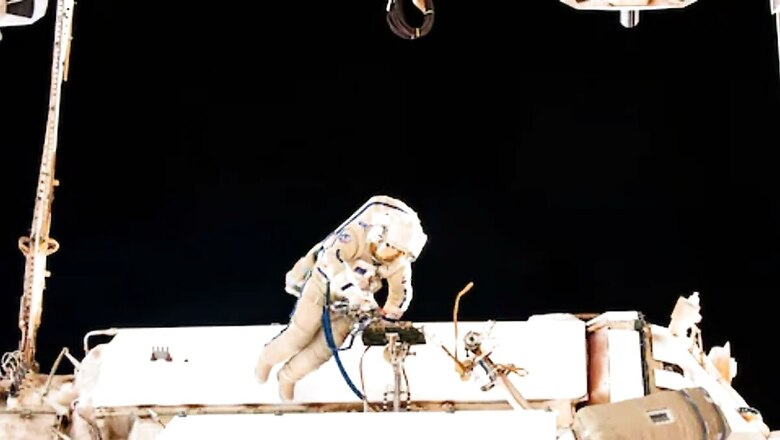
views
For over twenty years, the International Space Station (ISS) has remained the third brightest object visible in the sky, capturing the interest of people worldwide with its notable presence. This significant accomplishment in engineering and science serves as a tangible link to outer space for people across the globe.
Currently, six astronauts from NASA and other countries are orbiting the Earth aboard the space station. The International Space Station serves as a platform for testing research and technology under conditions of low gravity. These astronauts, living and conducting experiments on the ISS, orbit the Earth about every 90 minutes, witnessing 16 sunrises and sunsets each day.
NASA has explained that the ISS becomes visible to observers on Earth when sunlight reflects off its surface, usually during the evening or early morning. To spot the ISS, find a dark area and look up when it’s passing directly above you. However, NASA warns that these chances to see and recognise the ISS may only occur once or twice a month.
You can track the International Space Station using a dedicated method. NASA has created a website and app specifically for this purpose. These tools allow you to monitor the ISS’s path and easily locate it when it passes over your area. Moreover, you can opt to receive location-specific email and text alerts. This means you’ll get a notification whenever the ISS is about to fly over your location, enabling you to know exactly when to look up and see it.
To see the ISS, you can check out NASA’s “Spot the Station” website. You can do this daily, usually a few hours before or after sunrise or sunset. Over 270 astronauts have visited the ISS since it was launched. Since 2000, the ISS has been home to astronauts all year round. However, NASA plans to retire the space station by 2030. When the ISS re-enters Earth’s atmosphere, it will burn up and break apart over the ocean.




















Comments
0 comment